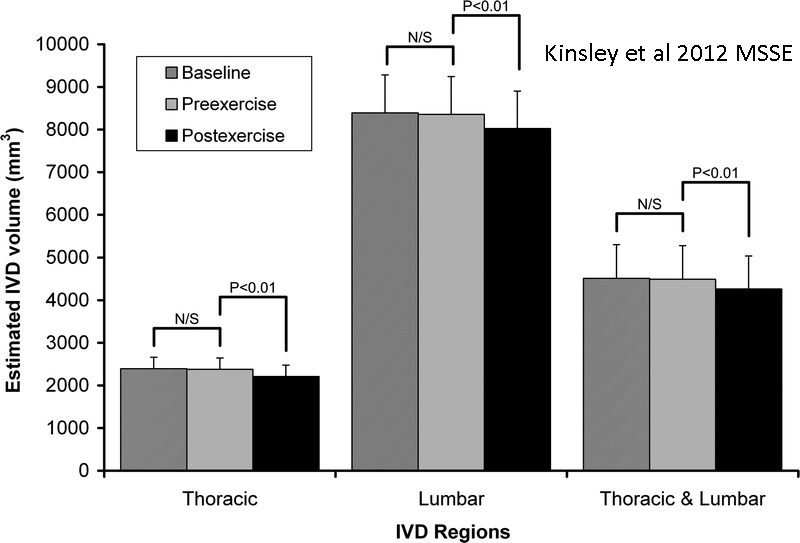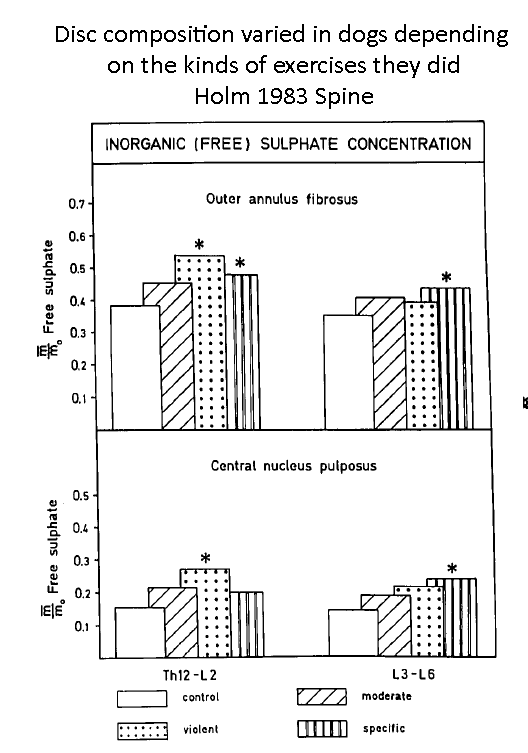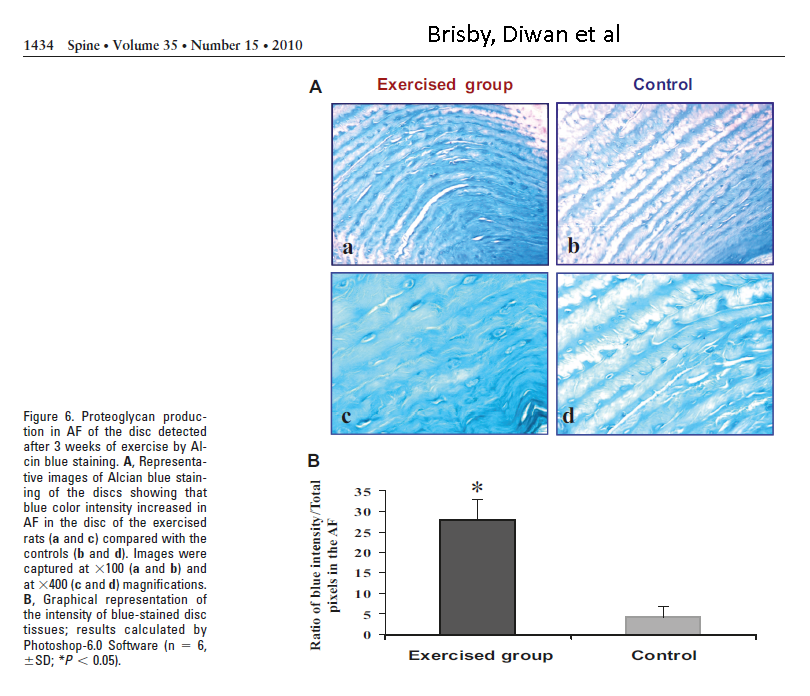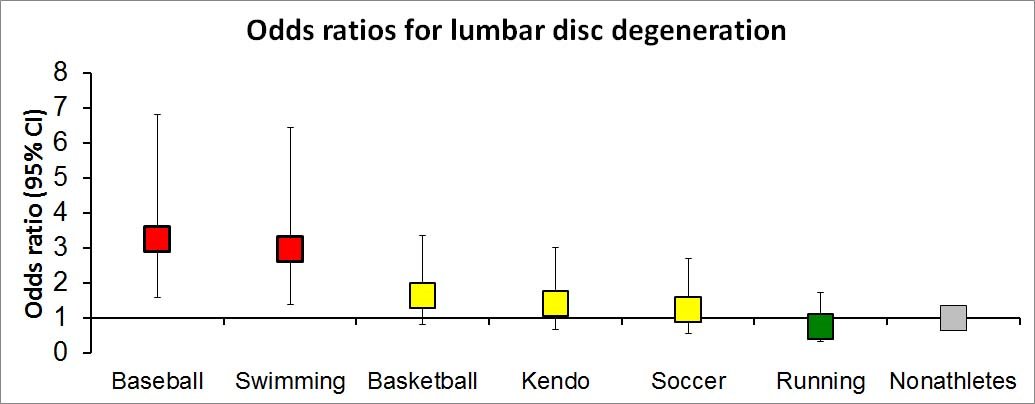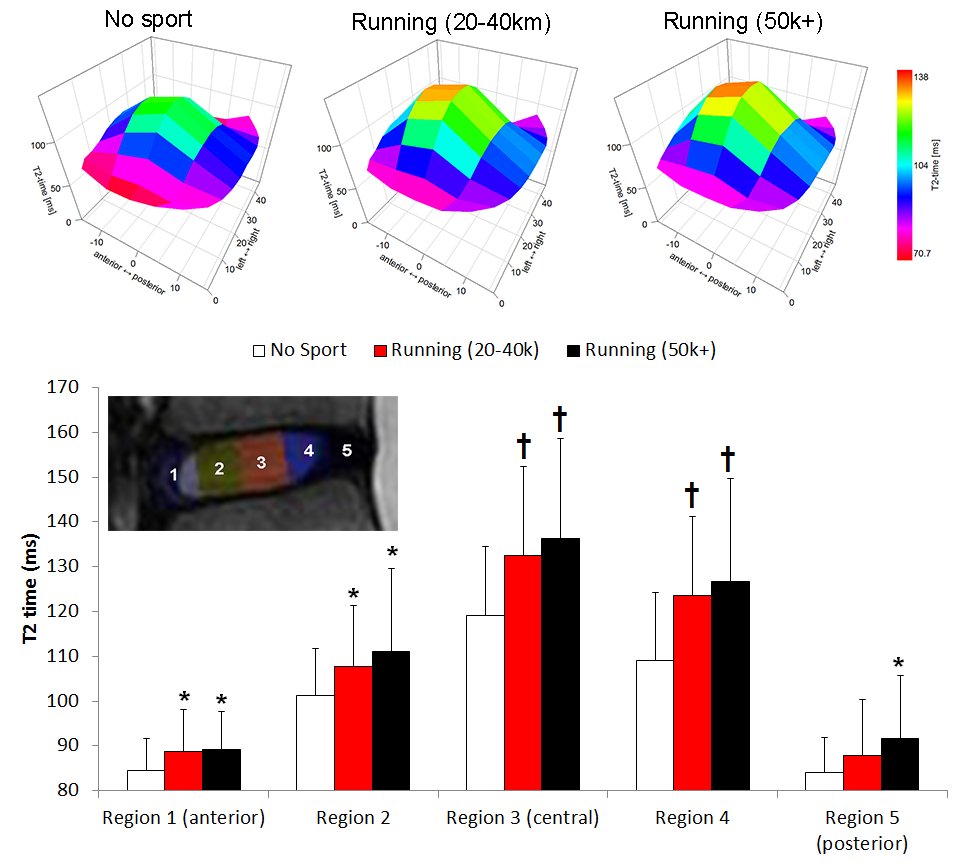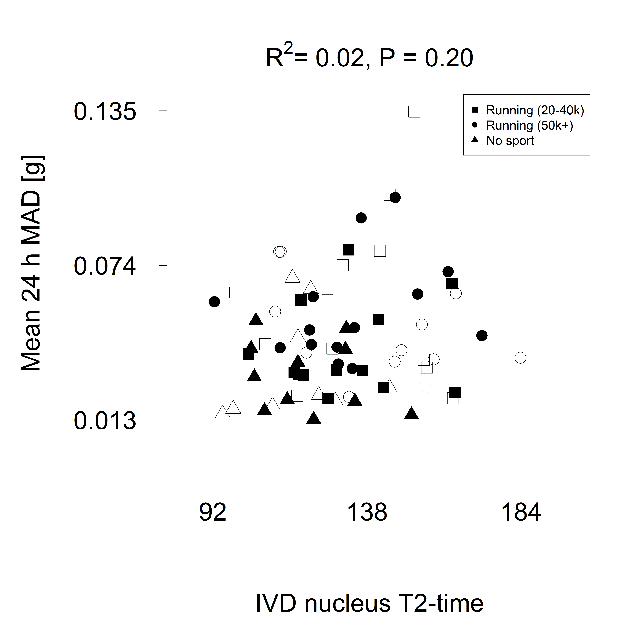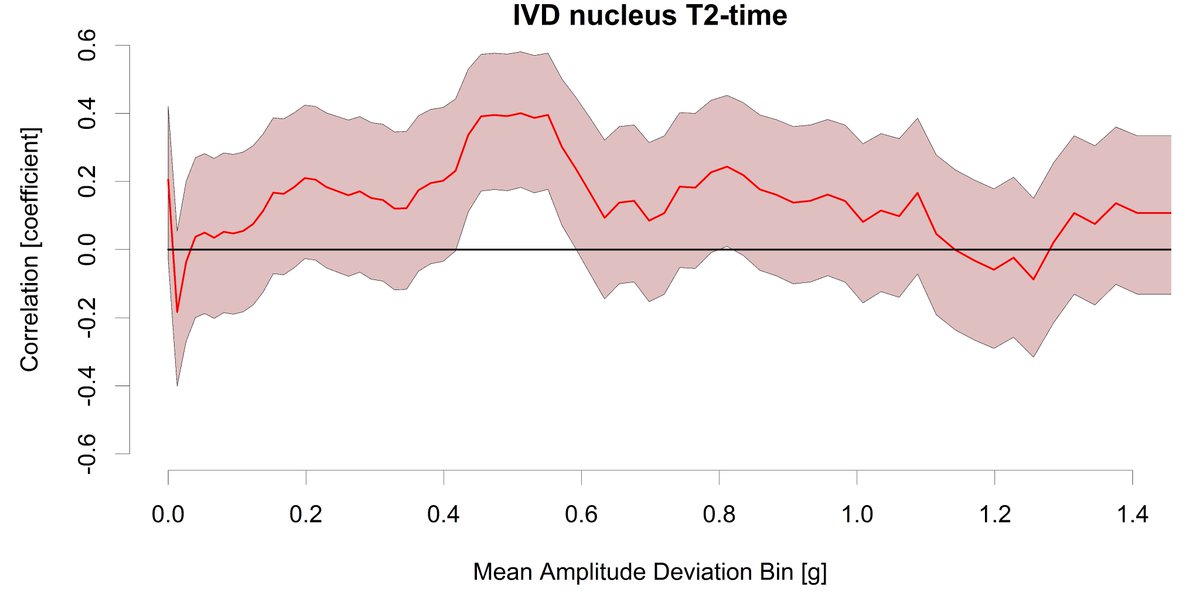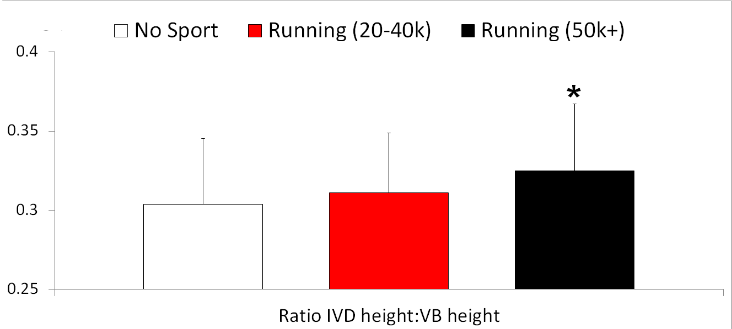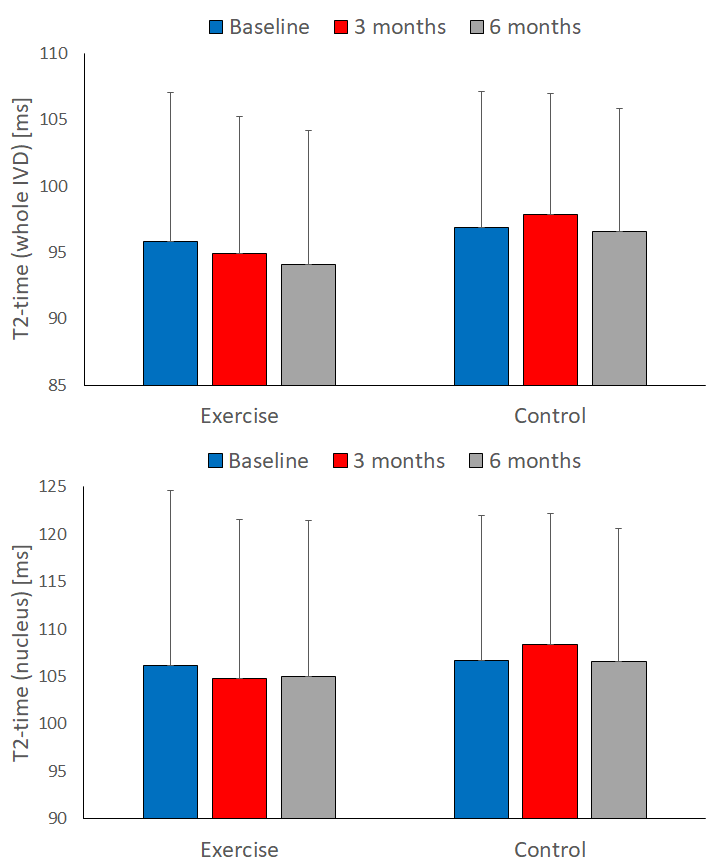Can #exercise “strengthen” the intervertebral disc?
A brief history of research from 2013 to 2020:
Review: http://dx.doi.org/10.1007/s40279-015-0444-2
Cross-section:">https://dx.doi.org/10.1007/s... http://dx.doi.org/10.1038/srep45975
RCT:">https://dx.doi.org/10.1038/s... http://dx.doi.org/10.1007/s00586-020-06379-7">https://dx.doi.org/10.1007/s...
 https://abs.twimg.com/emoji/v2/... draggable="false" alt="🙏" title="Gefaltete Hände" aria-label="Emoji: Gefaltete Hände"> collaborators
https://abs.twimg.com/emoji/v2/... draggable="false" alt="🙏" title="Gefaltete Hände" aria-label="Emoji: Gefaltete Hände"> collaborators
Thread https://abs.twimg.com/emoji/v2/... draggable="false" alt="👇" title="Rückhand Zeigefinger nach unten" aria-label="Emoji: Rückhand Zeigefinger nach unten">
https://abs.twimg.com/emoji/v2/... draggable="false" alt="👇" title="Rückhand Zeigefinger nach unten" aria-label="Emoji: Rückhand Zeigefinger nach unten">  https://abs.twimg.com/emoji/v2/... draggable="false" alt="👇" title="Rückhand Zeigefinger nach unten" aria-label="Emoji: Rückhand Zeigefinger nach unten">
https://abs.twimg.com/emoji/v2/... draggable="false" alt="👇" title="Rückhand Zeigefinger nach unten" aria-label="Emoji: Rückhand Zeigefinger nach unten">  https://abs.twimg.com/emoji/v2/... draggable="false" alt="👇" title="Rückhand Zeigefinger nach unten" aria-label="Emoji: Rückhand Zeigefinger nach unten">
https://abs.twimg.com/emoji/v2/... draggable="false" alt="👇" title="Rückhand Zeigefinger nach unten" aria-label="Emoji: Rückhand Zeigefinger nach unten">  https://abs.twimg.com/emoji/v2/... draggable="false" alt="👇" title="Rückhand Zeigefinger nach unten" aria-label="Emoji: Rückhand Zeigefinger nach unten">
https://abs.twimg.com/emoji/v2/... draggable="false" alt="👇" title="Rückhand Zeigefinger nach unten" aria-label="Emoji: Rückhand Zeigefinger nach unten">
#backpain
A brief history of research from 2013 to 2020:
Review: http://dx.doi.org/10.1007/s40279-015-0444-2
Cross-section:">https://dx.doi.org/10.1007/s... http://dx.doi.org/10.1038/srep45975
RCT:">https://dx.doi.org/10.1038/s... http://dx.doi.org/10.1007/s00586-020-06379-7">https://dx.doi.org/10.1007/s...
Thread
#backpain
First, we did a review of the literature (narrative, not a #systematicreview. This was back in my pre-systematic review days!) http://dx.doi.org/10.1007/s40279-015-0444-2">https://dx.doi.org/10.1007/s... in @SportsMedicineJ
 https://abs.twimg.com/emoji/v2/... draggable="false" alt="🙏" title="Gefaltete Hände" aria-label="Emoji: Gefaltete Hände"> @DieenJaap, Kirsten Albracht, Prof. Brüggemann, Dr. Vergroesen
https://abs.twimg.com/emoji/v2/... draggable="false" alt="🙏" title="Gefaltete Hände" aria-label="Emoji: Gefaltete Hände"> @DieenJaap, Kirsten Albracht, Prof. Brüggemann, Dr. Vergroesen
It has been well established that exercise and loading can impact IVD height. E.g. https://doi.org/10.1097/00007632-198503000-00011">https://doi.org/10.1097/0... https://doi.org/10.1249/mss.0b013e318260dbc1">https://doi.org/10.1249/m...
So, exercise and movement protocols can at least ‘influence’ the IVD
So, exercise and movement protocols can at least ‘influence’ the IVD
But what about actual exercise training?
Animal studies showed that exercise can ‘overload’ the IVD e.g. https://doi.org/10.1002/jor.1100110516">https://doi.org/10.1002/j...
However, one study in dogs showed that long-term exercise can improve IVD nutrition. https://doi.org/10.1097/00007632-198311000-00009">https://doi.org/10.1097/0...
Animal studies showed that exercise can ‘overload’ the IVD e.g. https://doi.org/10.1002/jor.1100110516">https://doi.org/10.1002/j...
However, one study in dogs showed that long-term exercise can improve IVD nutrition. https://doi.org/10.1097/00007632-198311000-00009">https://doi.org/10.1097/0...
Another key study by Prof. Helena Brisby and @DrAshishDiwan showed that 3 weeks of “moderate” treadmill exercise in rats and improved the disc https://doi.org/10.1097/brs.0b013e3181e0f5bc">https://doi.org/10.1097/b...
@K_Sheldrick
@K_Sheldrick
In a very nice study, Mike Hangai (Japan Institute of Sports Sciences) and Koji Kaneoka (from @waseda_univ_WUL) showed that college athletes who were swimmers had worse IVDs, but interestingly runners had, on average, better IVDs
http://dx.doi.org/10.1177/0363546508323252">https://dx.doi.org/10.1177/0...
http://dx.doi.org/10.1177/0363546508323252">https://dx.doi.org/10.1177/0...
So we ran this study http://dx.doi.org/10.1038/srep45975">https://dx.doi.org/10.1038/s... in @SciReports
We hypothesized that people who perform regular upright running activity will show better discs
Methods:
> cross-sectional study
> people aged 25-35 without a history of spine pathology
> people who, in past five years: ran 20-40km per week (n=30), ran 50+km per week (n=25), who were sedentary (n=24)
> measured “T2” of the IVDs
> cross-sectional study
> people aged 25-35 without a history of spine pathology
> people who, in past five years: ran 20-40km per week (n=30), ran 50+km per week (n=25), who were sedentary (n=24)
> measured “T2” of the IVDs
We found: Runners had ‘better’ intervertebral discs, as shown by longer T2-time in the disc.
This T2-time correlates with water and glyocosaminoglycan content in the IVD https://doi.org/10.1097/brs.0b013e318195dd44">https://doi.org/10.1097/b...
This T2-time correlates with water and glyocosaminoglycan content in the IVD https://doi.org/10.1097/brs.0b013e318195dd44">https://doi.org/10.1097/b...
Rather: loading in specific ranges.
The strongest association to higher IVD T2-times were seen between 0.44 and 0.59g.
This corresponds to fast #walking and slow #jogging.
The strongest association to higher IVD T2-times were seen between 0.44 and 0.59g.
This corresponds to fast #walking and slow #jogging.
Beyond the composition, there was evidence of disc hypertrophy in the long-distance runners.
The height of the IVD relative to that of the vertebral body, which serves as an internal control for body size, was greater in the long-distance runners
The height of the IVD relative to that of the vertebral body, which serves as an internal control for body size, was greater in the long-distance runners
This study provided the first ever cross-sectional evidence in humans that exercise may well favourably impact the IVD
This is nice: but can we actually improve the intervertebral disc with exercise in an interventional study?
This is nice: but can we actually improve the intervertebral disc with exercise in an interventional study?
So we ran this RCT: http://dx.doi.org/10.1007/s00586-020-06379-7">https://dx.doi.org/10.1007/s...
 https://abs.twimg.com/emoji/v2/... draggable="false" alt="🙏" title="Gefaltete Hände" aria-label="Emoji: Gefaltete Hände"> @stopsbackpain @_clintmiller @PatrickOwenPhD @tjrantal Katherine Simson Drs Connell and Hahne Prof. Trudel
https://abs.twimg.com/emoji/v2/... draggable="false" alt="🙏" title="Gefaltete Hände" aria-label="Emoji: Gefaltete Hände"> @stopsbackpain @_clintmiller @PatrickOwenPhD @tjrantal Katherine Simson Drs Connell and Hahne Prof. Trudel
Methods: RCT, 40 participants with chronic #backpain, 2 groups, main outcome = IVD T2-time. Powered to detect a ~2% difference between groups.
Exercise: a specially developed #exercise program
Control: no/low-load motor control training and manual therapy
Exercise: a specially developed #exercise program
Control: no/low-load motor control training and manual therapy
Findings: overall no real differences to speak of in the discs between the group with the targetted exercise program and the control group
There were some differences between groups (favouring exercise) for posterior annulus and higher L5/S1 IVD apparent diffusion coefficients.
But these did not persist after adjusting p-values for false positives.
But these did not persist after adjusting p-values for false positives.
Overall, the RCT http://dx.doi.org/10.1007/s00586-020-06379-7">https://dx.doi.org/10.1007/s... did not provide evidence that the exercise as performed could have a positive effect on the IVD in people with chronic back pain
Could look at other exercise types (e.g. running), larger volume of exercise, longer follow-up.
Could look at other exercise types (e.g. running), larger volume of exercise, longer follow-up.
Summary:
 https://abs.twimg.com/emoji/v2/... draggable="false" alt="➡️" title="Pfeil nach rechts" aria-label="Emoji: Pfeil nach rechts"> exercise could/can & #39;improve& #39; the IVD
https://abs.twimg.com/emoji/v2/... draggable="false" alt="➡️" title="Pfeil nach rechts" aria-label="Emoji: Pfeil nach rechts"> exercise could/can & #39;improve& #39; the IVD
 https://abs.twimg.com/emoji/v2/... draggable="false" alt="➡️" title="Pfeil nach rechts" aria-label="Emoji: Pfeil nach rechts"> we found evidence that running exercise is associated with better IVD characteristics
https://abs.twimg.com/emoji/v2/... draggable="false" alt="➡️" title="Pfeil nach rechts" aria-label="Emoji: Pfeil nach rechts"> we found evidence that running exercise is associated with better IVD characteristics
 https://abs.twimg.com/emoji/v2/... draggable="false" alt="➡️" title="Pfeil nach rechts" aria-label="Emoji: Pfeil nach rechts">but the very first RCT (in #backpain) was inconclusive
https://abs.twimg.com/emoji/v2/... draggable="false" alt="➡️" title="Pfeil nach rechts" aria-label="Emoji: Pfeil nach rechts">but the very first RCT (in #backpain) was inconclusive
 https://abs.twimg.com/emoji/v2/... draggable="false" alt="➡️" title="Pfeil nach rechts" aria-label="Emoji: Pfeil nach rechts">future work could look at different exercise, populations, durations
https://abs.twimg.com/emoji/v2/... draggable="false" alt="➡️" title="Pfeil nach rechts" aria-label="Emoji: Pfeil nach rechts">future work could look at different exercise, populations, durations
And ESPECIALLY very big
Without you these works would not have happened!

 Read on Twitter
Read on Twitter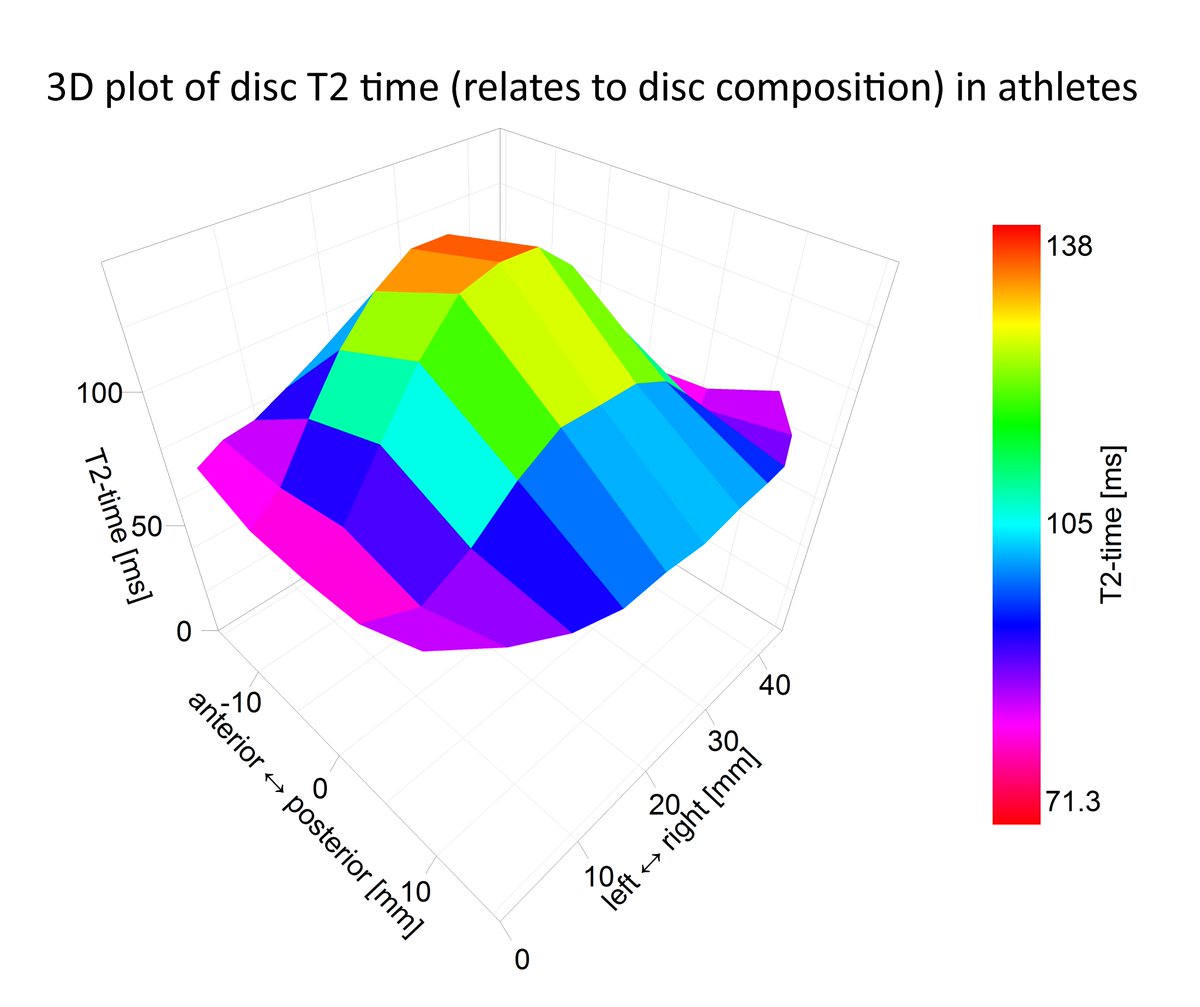 collaboratorsThread https://abs.twimg.com/emoji/v2/... draggable="false" alt="👇" title="Rückhand Zeigefinger nach unten" aria-label="Emoji: Rückhand Zeigefinger nach unten"> https://abs.twimg.com/emoji/v2/... draggable="false" alt="👇" title="Rückhand Zeigefinger nach unten" aria-label="Emoji: Rückhand Zeigefinger nach unten"> https://abs.twimg.com/emoji/v2/... draggable="false" alt="👇" title="Rückhand Zeigefinger nach unten" aria-label="Emoji: Rückhand Zeigefinger nach unten"> https://abs.twimg.com/emoji/v2/... draggable="false" alt="👇" title="Rückhand Zeigefinger nach unten" aria-label="Emoji: Rückhand Zeigefinger nach unten"> #backpain" title="Can #exercise “strengthen” the intervertebral disc? A brief history of research from 2013 to 2020:Review: https://dx.doi.org/10.1007/s... https://dx.doi.org/10.1038/s... https://dx.doi.org/10.1007/s... https://abs.twimg.com/emoji/v2/... draggable="false" alt="🙏" title="Gefaltete Hände" aria-label="Emoji: Gefaltete Hände"> collaboratorsThread https://abs.twimg.com/emoji/v2/... draggable="false" alt="👇" title="Rückhand Zeigefinger nach unten" aria-label="Emoji: Rückhand Zeigefinger nach unten"> https://abs.twimg.com/emoji/v2/... draggable="false" alt="👇" title="Rückhand Zeigefinger nach unten" aria-label="Emoji: Rückhand Zeigefinger nach unten"> https://abs.twimg.com/emoji/v2/... draggable="false" alt="👇" title="Rückhand Zeigefinger nach unten" aria-label="Emoji: Rückhand Zeigefinger nach unten"> https://abs.twimg.com/emoji/v2/... draggable="false" alt="👇" title="Rückhand Zeigefinger nach unten" aria-label="Emoji: Rückhand Zeigefinger nach unten"> #backpain" class="img-responsive" style="max-width:100%;"/>
collaboratorsThread https://abs.twimg.com/emoji/v2/... draggable="false" alt="👇" title="Rückhand Zeigefinger nach unten" aria-label="Emoji: Rückhand Zeigefinger nach unten"> https://abs.twimg.com/emoji/v2/... draggable="false" alt="👇" title="Rückhand Zeigefinger nach unten" aria-label="Emoji: Rückhand Zeigefinger nach unten"> https://abs.twimg.com/emoji/v2/... draggable="false" alt="👇" title="Rückhand Zeigefinger nach unten" aria-label="Emoji: Rückhand Zeigefinger nach unten"> https://abs.twimg.com/emoji/v2/... draggable="false" alt="👇" title="Rückhand Zeigefinger nach unten" aria-label="Emoji: Rückhand Zeigefinger nach unten"> #backpain" title="Can #exercise “strengthen” the intervertebral disc? A brief history of research from 2013 to 2020:Review: https://dx.doi.org/10.1007/s... https://dx.doi.org/10.1038/s... https://dx.doi.org/10.1007/s... https://abs.twimg.com/emoji/v2/... draggable="false" alt="🙏" title="Gefaltete Hände" aria-label="Emoji: Gefaltete Hände"> collaboratorsThread https://abs.twimg.com/emoji/v2/... draggable="false" alt="👇" title="Rückhand Zeigefinger nach unten" aria-label="Emoji: Rückhand Zeigefinger nach unten"> https://abs.twimg.com/emoji/v2/... draggable="false" alt="👇" title="Rückhand Zeigefinger nach unten" aria-label="Emoji: Rückhand Zeigefinger nach unten"> https://abs.twimg.com/emoji/v2/... draggable="false" alt="👇" title="Rückhand Zeigefinger nach unten" aria-label="Emoji: Rückhand Zeigefinger nach unten"> https://abs.twimg.com/emoji/v2/... draggable="false" alt="👇" title="Rückhand Zeigefinger nach unten" aria-label="Emoji: Rückhand Zeigefinger nach unten"> #backpain" class="img-responsive" style="max-width:100%;"/>
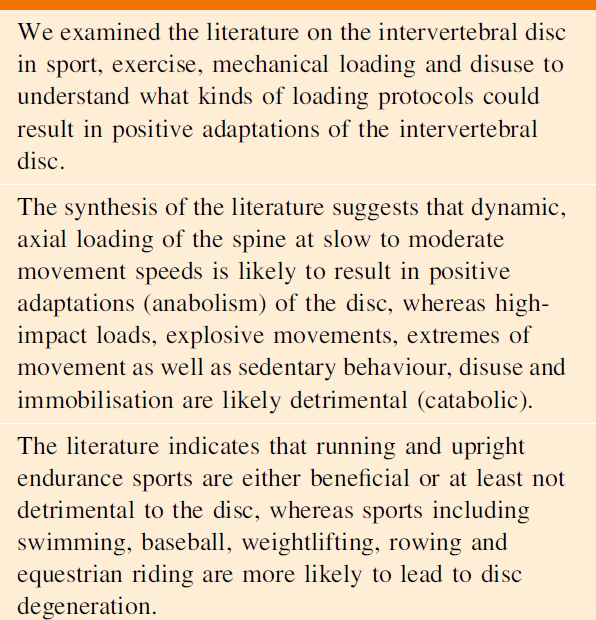 @DieenJaap, Kirsten Albracht, Prof. Brüggemann, Dr. Vergroesen" title="First, we did a review of the literature (narrative, not a #systematicreview. This was back in my pre-systematic review days!) https://dx.doi.org/10.1007/s... in @SportsMedicineJhttps://abs.twimg.com/emoji/v2/... draggable="false" alt="🙏" title="Gefaltete Hände" aria-label="Emoji: Gefaltete Hände"> @DieenJaap, Kirsten Albracht, Prof. Brüggemann, Dr. Vergroesen" class="img-responsive" style="max-width:100%;"/>
@DieenJaap, Kirsten Albracht, Prof. Brüggemann, Dr. Vergroesen" title="First, we did a review of the literature (narrative, not a #systematicreview. This was back in my pre-systematic review days!) https://dx.doi.org/10.1007/s... in @SportsMedicineJhttps://abs.twimg.com/emoji/v2/... draggable="false" alt="🙏" title="Gefaltete Hände" aria-label="Emoji: Gefaltete Hände"> @DieenJaap, Kirsten Albracht, Prof. Brüggemann, Dr. Vergroesen" class="img-responsive" style="max-width:100%;"/>
